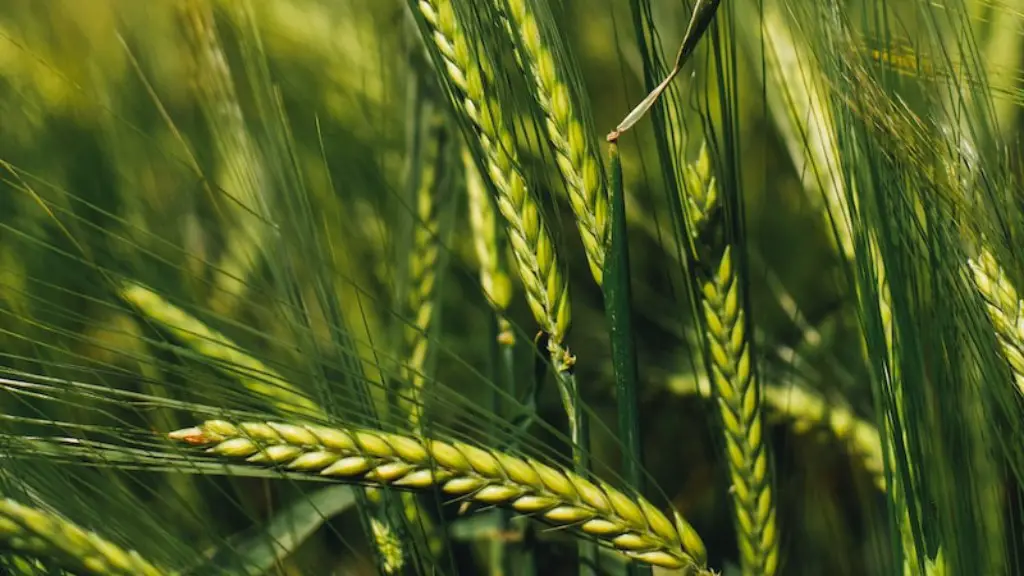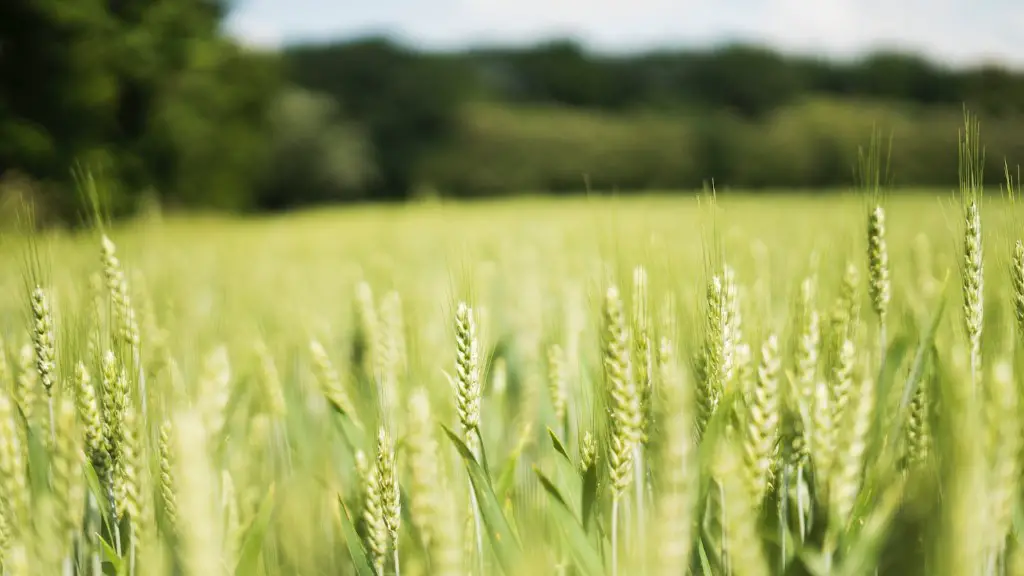Alluvium is a type of soil that is rich in nutrients and is perfectly suited for agriculture. This is due to the fact that alluvium is depositional in nature, meaning that it is constantly being replenished with new sediment and nutrients. This makes alluvium ideal for crops that require a lot of nutrients, such as corn and soybeans. Additionally, alluvium is very easy to till, which makes it ideal for large-scale farming operations.
Alluvium is a sedimentary soil that is formed by the deposition of silt and other fine materials in rivers, flood plains, and other bodies of water. Alluvium is rich in nutrients and is an important soil type for agriculture. The deposits of alluvium can be very deep, and the soil is highly productive for crops. Alluvium is also very important for groundwater recharge and for protecting surface water resources from pollution and sedimentation.
In what way is alluvium valuable?
Alluvium is a type of sediment that is typically found near rivers and streams. It is made up of a variety of materials, including rocks, sand, and clay. Alluvium often contains valuable ores such as gold and platinum, as well as a wide variety of gemstones. These concentrations of valuable materials are known as placer deposits. Throughout history, many shallow lakes have been filled in with alluvium to create fertile plains. Alluvial soils are often very fertile, making them ideal for agriculture.
Alluvial soil is one of the most fertile soil on earth. It is a deposit of clay, silt, sand, and gravel left by flowing streams in a river valley or delta. Alluvial soil is very productive and is used to grow a variety of crops.
Why alluvial soil is more fertile
Coastal alluvial soil is a type of soil that is formed by the deposition of alluvium and sediments carried by rivers and seas over many years. This soil is known for being fertile due to the high content of organic minerals. The soil is also made up of sand, silt and clay in different proportions.
The Mississippi River Alluvial Plain is a critical region for agricultural production in the United States, providing the majority of the nation’s rice, catfish, and cotton. Although it is a humid region, high agricultural yields are maintained through irrigation from groundwater and surface water sources. This region is vital to the US economy and food security, and thus it is important to protect and manage these water resources wisely.
What are the uses of alluvial soil for agriculture?
Alluvial soils are among the most fertile in the world and are excellent for agriculture. They are very easy to irrigate using canals or wells, and they yield bumper crops of rice, wheat, sugarcane, tobacco, cotton, pulses, oilseeds, jute, maize, oilseeds, leguminous crops, vegetables, and fruits. In short, alluvial soils are ideal for farming and have the potential to produce huge amounts of food.
Alluvial soil is the most fertile soil because it has a loamy texture (contains sand, clay and slit) and is rich in humus, contains organic nutrients. A granular material composed of finely divided rock and mineral particles are called sand. Sand with clay and slit helps to increase fertility of alluvial soil.
Is alluvial soil best for growing crops?
Alluvial soils are very fertile, and they contain a good amount of nutrients. However, the level of fertility varies depending on the age of the soil. Alluvial soils are usually covered with grasses, and crops like rice, wheat, sugarcane, tobacco, jute, cotton, oilseeds, fruits and vegetables can be grown in them.
This is a very good soil for vegetable production. The different proportions of sand, silt, and clay make it very fertile.
How important is alluvial soil for food production
Alluvial soil is very good for crop production as it is very fertile due to the deposition of sediments that are carried by the rivers which come from mountains. The region containing the soil is very fertile and is able to support a large amount of agriculture.
The crops that are grown in alluvial soil are tobacco, rice, wheat, bajra, chickpea, soybean, cotton, mustard, groundnut, sesame, barley, maize, oilseeds, etc. Alluvial soil is a very fertile type of soil that is formed by the deposition of sediment by rivers. This soil is very rich in nutrients and is ideal for growing crops.
What nutrients are found in alluvial soil?
The alluvial soil is a very fertile soil that is mostly found in river basins. These soils are rich in nutrients like potash, phosphoric acid, and lime, which are ideal for the growth of crops like sugarcane, paddy, wheat, and other cereals and pulses. Alluvial soils are very productive and are capable of sustaining high crop yields.
Alluvial soil is one of the most fertile types of soil and is ideal for growing crops. The soil is made up of a mixture of sand, silt and clay, which gives it good drainage and prevents waterlogging. The soil is also rich in organic matter and nutrients, making it ideal for plant growth.
Which Plains is best suited for agriculture
The northern plains are some of the most fertile soils in the world. This region is best suited for agriculture as the climate is very conducive to growing crops. The winters are relatively mild and the summers are not too hot, which helps the crops to grow well. The rainfall is also sufficient for the crops to flourish.
Loam soils are considered ideal for growing crops because they are a combination of sandy and clay soils along with high amounts of organic matter. This combination allows water to pass through the soil more slowly, which is beneficial for crops.
What is alluvium used for?
The alluvium deposits in these areas are rich in nutrients, making them perfect for cultivating crops such as rice, wheat, sugarcane, and legumes. The soil is able to retain moisture well, which is essential for these crops. The climate is also ideal for these crops, with ample sunlight and rainfall.
Alluvial soil is a type of soil that is formed by the deposition of the river load as it flows from its upper to its lower course. Alluvial soil is characterized by being light and porous, making it easily tillable. In addition, alluvial soil is a fertile soil, as it is rich in minerals, especially potash and lime.
Conclusion
Alluvium is jury-rigged from the debris that falls off of hillsides and mountains from erosion. The alluvium that is found in river deltas is extremely fertile because it is new land that is being constantly deposited. Alluvium is also important to agriculture because it is a major source of fresh water for irrigation.
Alluvium is important to agriculture because it is a type of sediment that is deposited by a body of moving water, typically a river. Alluvium is typically composed of sand, silt, and clay particles, and is a very fertile type of soil that is ideal for crops.




